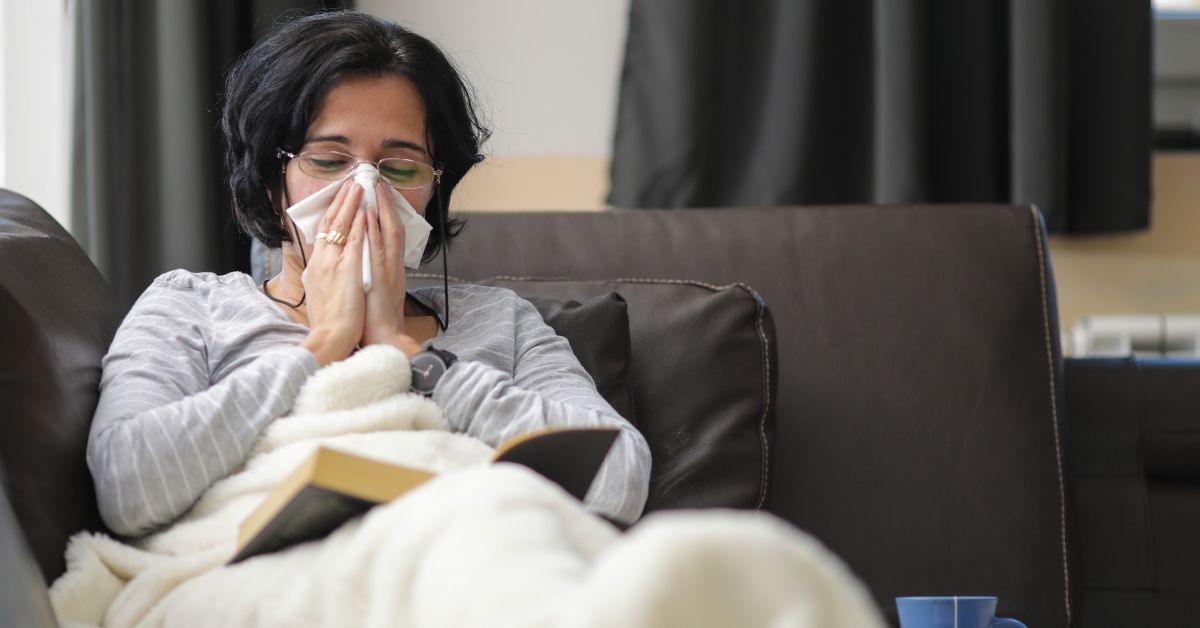December officially kicks off flu season. This means that flu activity in our communities is starting to ramp up once again.
Knowing what to do when you have the flu can be confusing. Should you see your provider or just wait it out at home? And this year with the COVID-19 pandemic, knowing what to do when you’re feeling under the weather is even more confusing.
Don’t worry, we’ve got answers for you.
Preventing the flu
First, there are several steps you can take to help prevent the flu.
These include:
- Get a flu shot and encourage others to do the same. Although the flu shot does not prevent all strains of the flu, it does help to lessen the severity.
- Wash your hands often with soap and warm water.
- Refrain from touching your eyes, nose and mouth with dirty hands.
- Avoid close contact with others who are not feeling well.
- Sanitize surfaces like phones, countertops and keyboards frequently.
- Wear a mask when in public or around those outside your household.
Lucky for us, the prevention steps for the flu are ones we should already be taking to help slow the spread of COVID-19.
What to do if you have the flu
If you are sick and have flu symptoms, you should stay at home—with the exception of any needed medical care—and avoid contact with people. This is extremely important this year as the symptoms of the flu and COVID-19 are very similar.
If you think you are ill, please take simple steps to ensure proper diagnosis and treatment.
- Contact your primary care physician to discuss appropriate next steps.
- Stay home and get rest.
- Drink plenty of clear fluids such as water, herbal tea and sports drinks.
- Use a humidifier to make breathing easier.
- Take over-the-counter medicine to treat fever and aches.
- If your symptoms worsen or cause concern, contact your provider.
When does the flu turn into an emergency?
According to the CDC, you should get medical care right away if you are experiencing any of these signs or symptoms:
In children:
- Fast breathing or trouble breathing
- Bluish lips or face
- Ribs pulling in with each breath
- Chest pain
- Severe muscle pain (child refuses to walk)
- Dehydration (no urine for 8 hours, dry mouth, no tears when crying)
- Not alert or interacting when awake
- Seizures
- Fever above 104°F
- In children less than 12 weeks, any fever
- Fever or cough that improve but then return or worsen
- Worsening of chronic medical conditions
In adults:
- Difficulty breathing or shortness of breath
- Persistent pain or pressure in the chest or abdomen
- Persistent dizziness, confusion, inability to arouse
- Seizures
- Not urinating
- Severe muscle pain
- Severe weakness or unsteadiness
- Fever or cough that improve but then return or worsen
- Worsening of chronic medical conditions
How long does the flu last?
If you have a typical, uncomplicated case of the flu, expect it to last one to two weeks. Your symptoms might be gone after three to seven days, but sometimes a cough can last a little longer, over two weeks.
Should I get the flu shot after I’ve already had the flu?
The answer is yes! It will still help prevent against future sickness and could reduce the severity of your symptoms if you get sick again. While we commonly refer to it as “the flu,” influenza refers to over 100 viruses.
When you get sick, your body only makes antibodies that protect you from that exact virus. Thus, you can get sick with a similar yet different virus later. After you’ve recovered from your sickness, your next step in prevention is to get the flu shot.
Learn more about the flu vaccine and find a Bon Secours provider near you today.
If you are experiencing flu-like symptoms, which may include fever, cough, shortness of breath, sore throat or body aches, you should call your primary care provider’s office. You may be encouraged to complete a virtual visit.





